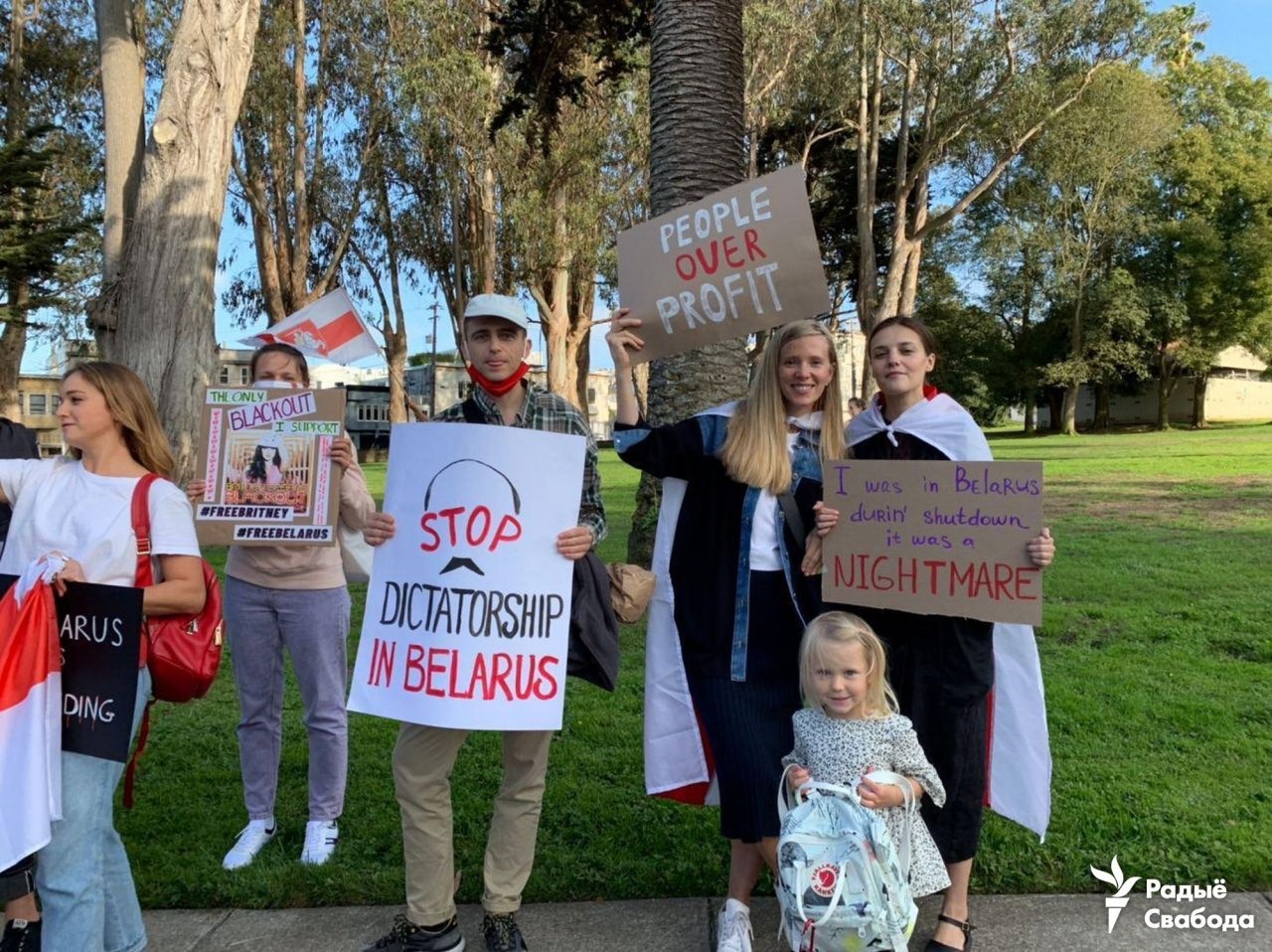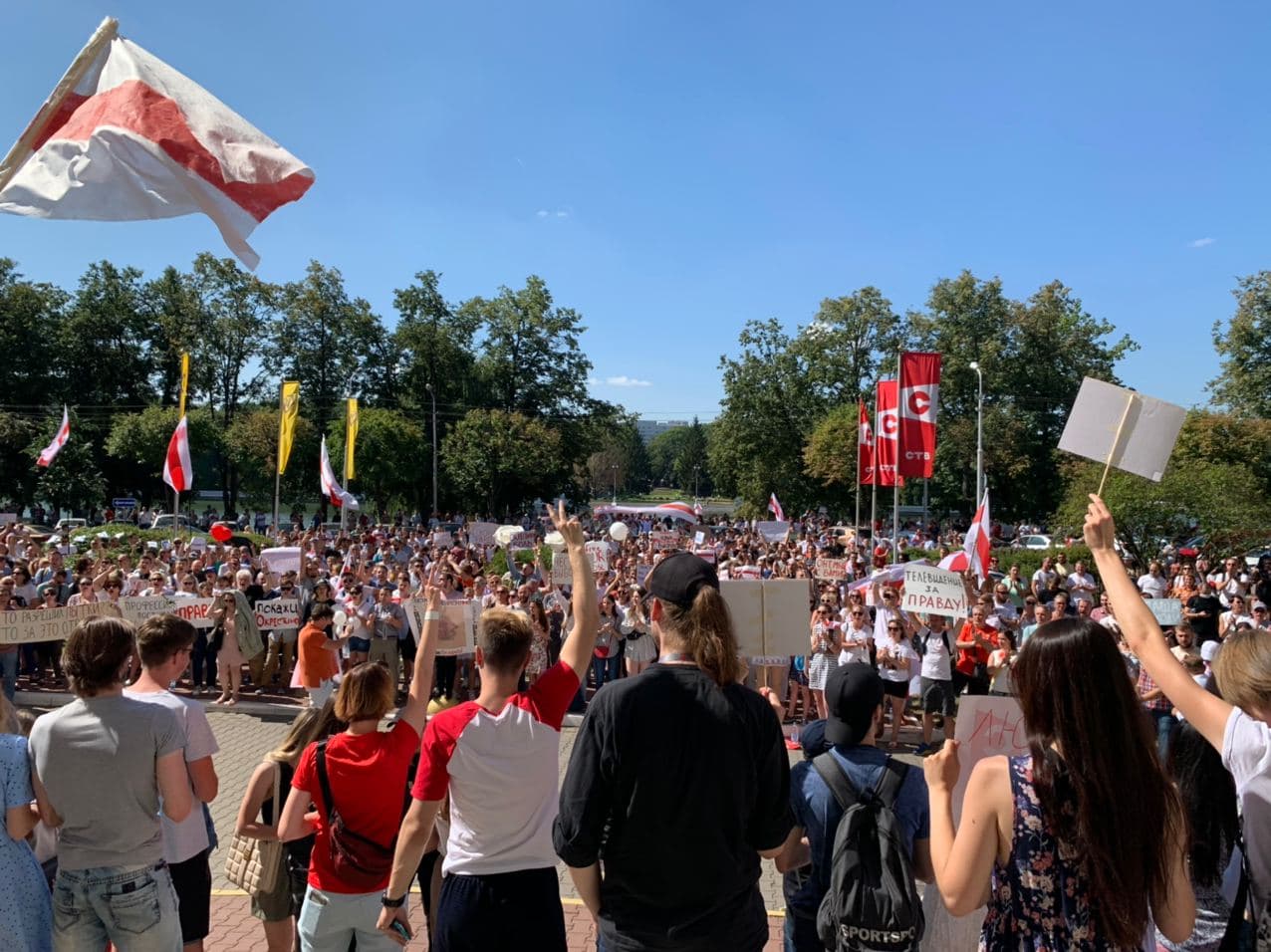Modern traffic flows of third digital world

Belarus has a complicated relationship with the digital world / Euroradio
"We have permanently removed your channel from YouTube. You won't be able to access, own, or create any other YouTube channels in the future," was the message the editors of the Belarusian website Reform.by received on March 9. Since August 2020, the project has regularly posted videos of street protests. Probably, it was these videos or, to be more precise, the brutality of the Belarusian law enforcement officers recorded in them that caused the removal of the channel.
A major player could dictate its rules to YouTube or at least raise the voice in outrage and make itself heard. But what are the chances of an objective investigation in the case of a small project from Belarus?
"Attempts to find out the reasons for the blocking led nowhere, and the entire video archive of the editorial office was deleted," states the Reform.by team. It also adds that unknown persons regularly complained to the moderators of the video service about the content of the channel.
"In November, the attackers managed to get our account frozen for three months without removing content. Only a lengthy correspondence with the administration of the service allowed us to get back the ability to add new videos -- that's how the relationship between the editorial team and the administration of the video hosting was shaping. The Russian-language segment of YouTube is moderated by a Russian team".
A small country
That last point is particularly important. There is no Google office in Minsk, which owns YouTube. And the Moscow office doesn't seem inclined to view the relatively small Belarusian market as an independent one.
In 2019, media manager Franak Viachorka tried to figure out why videos in Belarusian very rarely get moderated on Google Ads. He got the answer: videos in Belarusian, Tatar, Kazakh, and other "small" languages are limited for paid promotion.
What is the reason? Viachorka was told by Google's Moscow office that the company could not afford to support them.
"What should I do?" the media manager asked.
"Create content in Russian," he was advised.
At that time, Google Ads supported 45 languages. The Belarusian language was not among them. Today, Google Ads supports 44 languages. And there is still no Belarusian among them. Unlike, for example, the Ukrainian.
"If you create an ad in an unsupported language, it will be rejected," the service representatives said. At the same time, Facebook has no such conditions. You can designate a post in any language for the promotion.
The Belarusian state-run media take advantage of the situation. They work mainly in Russian, so they can afford to flood YouTube with their ads. From time to time - usually on the eve of mass actions - participants of protest telegram chats start complaining that before every video they have to watch propaganda clips about the beautiful life in Belarus, about how Lukashenka's opponents want to ruin everything, and about how bad it is to stand up for their rights on the streets.
Paid promotion is important for first-time video bloggers. Without it, it's almost impossible to quickly get serious audience figures. In this situation, you have to be a fan of Belarusian content and be ready for a long way to the "Golden Button", which YouTube gives to the channels with millions of subscribers. The rules that Google Ads is working by today are made for those who make content in Russian, while speakers of "small" languages, such as Belarusian, are promised difficulties.
Such different human rights
On August 9, 2020, the day of the presidential election, Belarusians found themselves in a new digital reality. The Internet access in the country was blocked - this lasted for three days. Dozens of information sites were also blocked.
The Psiphon network of proxy servers and similar services helped to bypass the blockage. The Internet was turned on after three days, to be later shut down every Sunday, when tens of thousands of people came out to protest on the streets of Minsk and other cities. So the Belarusians did not uninstall from their phones the applications that give access to proxy servers. By the end of the year the Belarusian traffic, which has passed through Psiphon since August 9, was 4.81 petabytes.
The audience of the Telegram messenger, to which the blocked media "moved," grew many times over. However, in December, the Belarusian authorities made a successful attempt to block it during another mass protest action. Psiphon came to the rescue again, but the Belarusian authorities were more successful than their counterparts in Russia, where they repeatedly tried but failed to build a barrier between Telegram and its users.
Where did the Belarusian authorities get the technology to effectively limit access to the Internet? The necessary equipment was supplied by the American company Sandvine. The press calls its developments "the Kalashnikov of the digital age".
Actually, Sandvine has a Business Ethics Committee. It reviews every company transaction to ensure that there is no risk of using its technology "to the detriment of human rights." In response to an inquiry by Euroradio, Sandvine said it believed it had not violated anything by supplying Internet traffic filtering equipment to the Belarusian authorities.
But after Bloomberg investigated the Internet blockage in Belarus and the Belarusians of San Francisco began to gather regularly outside the office of Francisco Partners, the investment firm that owns Sandvine, their tone changed. The deal with the Belarusian authorities had to be broken after all. The developer said that custom code had been introduced into the products supplied to Belarus to impede the free flow of information during the country's elections.
"This is a human rights violation that led to the automatic termination of our end-user license agreement," Sandvine said in a statement. "Our company takes human rights violations very seriously. We also do not tolerate the use of technology to restrict the information that leads to human rights abuses".
However, analysts point out that the termination of the agreement does not mean that Sandvine's products immediately stop working. In other words, the Belarusian authorities had time to find a replacement.
Silence is better for everyone
When Sandvine shipped technology to Belarus, they could not have imagined that its use would be accompanied by a number of deaths, thousands of detentions, and torture in Belarusian prisons. From San Francisco, Belarus looks like a country hopelessly stuck in the third digital world - so far away that it is basically hard to imagine what is happening there.
Probably the same reasoning applies to Cloudflare, which is also located in San Francisco. Cloudflare services protect websites from DDoS attacks. One of them is the site of the Belarusian state TV company ONT, which after the elections is carefully mocking Lukashenka's opponents and justifying the actions of the security forces.
The current U.S. sanctions against Belarus prohibit the provision of American services to any company directly or indirectly controlled by sanctioned individuals. The "black list" includes a dozen and a half citizens of Belarus, including Alyaksandr Lukashenka.
Formally, ONT is a closed joint-stock company "Second National Channel". However, it was established by the decree of Alyaksandr Lukashenka (February 15, 2002). The chairman of the board of the Second National Channel is approved by the shareholders' meeting. However, it happens only after Lukashenka proposes the candidacy of the top manager.
The Wikipedia article on ONT says that the Ministry of Information of Belarus is the owner of the controlling stake in the channel (51%). The minority shareholders are Belarusbank (29%) and Factory of Information Technologies Ltd. (20%).
When we hinted to Cloudflare about them violating sanctions, the company responded that it believed it was in compliance. And whether or not it had begun an investigation into its cooperation with ONT, the response was ambiguous: "When we receive allegations that users of our services are subject to sanctions, we investigate those allegations."
But much more surprising was the reaction of the Belarusian Internet community. Local activists asked "not to bother" the company anymore because it is easier for Cloudflare to give up the Belarusian market in general than to figure out what is "allowed" and what is "not allowed" here, and to be responsible for possible violations. Cloudflare is really needed in our region. The company is an important provider of services that allow sites to work steadily.
Modern traffic flows
Big digital corporations do not consider Belarus as an independent market. It is not uncommon for the Russian or Ukrainian offices of large companies to deal with Belarusian issues. This creates problems both separately for independent media and for freedom of speech in general. Private developers make reckless deals with the Belarusian authorities. And the media space is filled with propaganda videos in Russian.
The way out of the situation is to "make others respect you" to earn a reputation of the country, the interests of which are not to be disregarded. Belarus has been on its way to such a status for the last few years. The top startups founded by people from our country, the "crypto haven", the business-friendly High Tech Park -- all this attracted attention to Belarus and made us analyze our situation.
But in 2020, it turned out that it was all futile. The attitude of the authorities to the Internet, in general, can be described by the ridiculous phrase "modern traffic flows", uttered by Deputy Prime Minister Anatol Kalinin. It made everyone laugh at the opening of the Minsk ICT Forum Tibo. Well, the IT specialists remained "eggheads," as Alyaksandr Lukashenka called them in December 2018.
For the past few months, Belarus has been on the world's media radar - and today, it's unlikely that another "Sandvine" would so easily sell the Belarusian authorities the technology to control the Internet. But at the same time, Belarus is rapidly disappearing from the context of the IT-sphere development. The authorities deprived the Hi-Tech Park of benefits that made doing business there attractive. And the political crisis encourages businesses to relocate from Belarus.
A story with a good ending
Still, we want to end our story with some good news. Three days after the removal, YouTube restored the Reform.by account. "We are pleased to inform you that we recently checked your account and, after looking again, can confirm that it does not violate our Terms of Use. We have unblocked your account and it is active and working again," YouTube representatives wrote to the editorial board.
The news is good, but a little residue remains. So you had your first look and you deleted it, but then you looked again and you realized the account hadn't violated anything? It reeks of indifference and a kind of... condescending attitude, or something like that. It was not explained what the problem with the account was. And was there a problem at all? Apparently, Belarusians don't need to know this. We should just be happy it worked out fine in the end.























